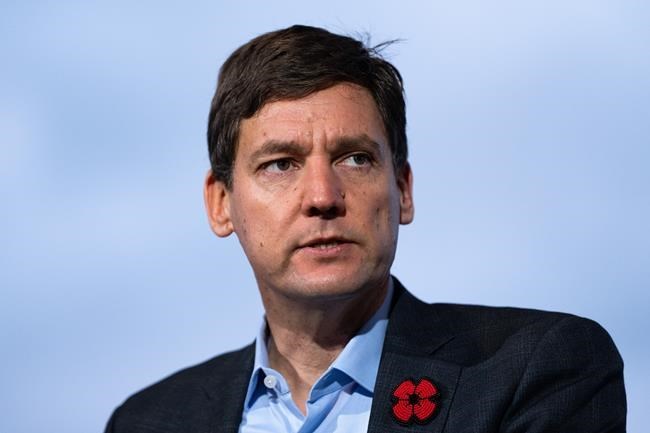VANCOUVER — British Columbia is launching a public housing plan to build more affordable rental units for middle-income earners who often struggle financially to live in the same communities where they work, Premier David Eby said Tuesday.
The New Democrat government's almost $3 billion BC Builds program will target property owned by governments, communities and non-profits, and provide low-cost financing to fast-track affordable rental developments on underutilized lands across B.C., he said.
Eby said the private market hasn't been able to ease B.C.'s ongoing housing crisis, resulting in the government making affordable housing one of its top priorities.
"We know that the middle class is struggling in our province," he said at a news conference. "The people who make our province go are struggling to find a decent place to live."
Teachers, nurses, firefighters, police officers, civic employees and construction workers have difficulties finding affordable places to live, said Eby.
In North Vancouver, where the premier made the BC Builds announcement, he said rents are as high as $5,000 a month for a three-bedroom apartment.
"We know that the private sector has not been able to deliver the middle-income housing that we need," he said. "We are attacking the housing issue head on."
The BC Builds strategy stands in contrast to the "predictable" outcomes when governments got out of the housing market, "speculators ran wild" and prices and rents rose, Eby said.
Opposition BC United Leader Kevin Falcon said NDP news conferences and photo opportunities are not what's needed to build homes.
"British Columbians are looking for real action and results on housing," Falcon, a former property developer, posted on social media.
The Green Party said the program offers no immediate help to tens of thousands of people in B.C. struggling daily to make ends meet.
"Premier Eby appears to be out of touch with the lived reality of renters across the province, who need support now, not in 12 to 18 months, to avoid slipping into homelessness," said Green MLA Adam Olsen in a statement.
Detailed estimates of the numbers of rental units the government expects the program to develop were not provided, but 20 sites with the potential to provide up to 4,000 rental units have already been identified, said Eby.
BC Builds projects a concept-to-construction timeline of 12 to 18 months to build the housing, compared with the current three- to five-year average to complete rental projects, he said
"The partners that were coming forward were really First Nations partners, local government partners, like the City of North Vancouver and groups like school boards and health authorities," Eby said.
The groups and entities with the property see the BC Builds program as an investment in the futures of their people and organizations, he said.
"They see a benefit for themselves or their community coming from this kind of housing," said Eby. "It's not a profit-driven approach. It's quite separate from the traditional real estate market. It's meeting a need that's out there."
North Vancouver Mayor Linda Buchanan said a 180-unit affordable rental project is currently being built on city property by a non-profit real estate developer.
"This is the largest investment in homes for everyday working people our city has seen in a generation," she said.
The BC Builds program is part of the NDP government's housing strategy, which now totals $19 billion and includes last year's initiatives to restrict short-term rentals, relax zoning regulations to permit more multi-residential housing developments and build more homes along transit corridors, Eby said.
All units in future BC Builds developments will have a target of households spending about 30 per cent of their income on monthly rent, said a B.C. Ministry of Housing statement.
The ministry said BC Builds developments aim to create affordable housing for families with incomes from $84,780 to $131,950 for a studio or one-bedroom home, or $134,410 to $191,910 for a two-bedroom home or larger.
The monthly rent will vary by community to reflect local incomes, the ministry said.
At least 20 per cent of BC Builds projects will have rents at least 20 per cent below market rate for projects that are partnerships with non-profits and First Nations, said the ministry.
The BC Builds announcement comes just ahead of the start of its spring legislative session next week and the introduction of the government's budget on Feb. 22, with a provincial election set for the fall.
This report by The Canadian Press was first published Feb. 13, 2024.



